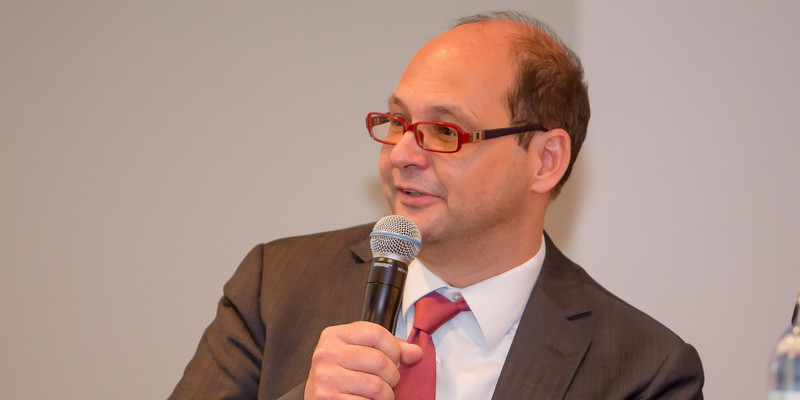Sounding the alarm for tourism research
MU president Prof. Karl Wöber spoke at an event organized by the Travel Industry Club Austria, the sister organization of the Travel Industry Club Germany, last Friday evening at the Le Meridian hotel in Vienna. The Travel Industry Club is a strongly growing network of tourism professionals with the objective to enhance the communication and enable collaborations within the industry. Approximately 60 participants listened to a panel of experts discussing recent trends in tourism research in Austria.
''Austria’s tourism experts complain that failures in politics and business start at the foundational research level. A 5.5 percent GDP-share and over 330,000 jobs in the tourism and leisure industry are apparently not sufficient for the public to finance a single Tourism and Leisure Studies research institute at a public university,'' they criticized. ''Austria can afford to finance universities with Guggenheim style architecture, but reduce the funds for tourism research.''
''Tourism research is a basis for innovation and ensuring competitiveness. According to the overall investment in research and development, we are very good compared to other European countries,'' said Statistics Austria expert Peter Laimer. However, it is very difficult to mark down the boundaries of tourism research as it is not defined as a separate scientific discipline - it’s just too interdisciplinary,’’ said Laimer. In Austria alone, all universities and non-university institutions may deal with tourism research, making it nearly impossible to find out where the tourism research expenditures "hide".
Prof. Wöber confirmed that there is a lot of research being done, but doubts whether it’s happening in tourism. ''One must also distinguish between applied and basic research,’’ he says, ''there is a lot of applied research currently being conducted, both at the university level and in technical colleges, however, little to no foundational research.'' This is reflected in the number of professors who are explicitly working on it (currently zero at public universities) or can be estimated by the number of employees who are financed by research funds. ''In recent years this became a huge problem for Austria," warned Wöber.
The director of the Research Department of the IMC TourismFACTORY at Fachhochschule Krems, Georg Christian Steckenbauer, put the importance of their own Tourism research institute into perspective. He called for a pooling of existing resources and enhanced cooperation efforts, that the problems cannot be solved by one institute. ''The research is wide-ranging, but ultimately it's about the context of application in order to add value and marketability,'' said Steckenbauer. Both he and Daniela Wagner from the FH Wien see the need for action to improve public translations and communications of research results.
On the contrary, Prof. Wöber warned explicitly about the ‘decline of domestic tourism research’- not only politicians, the industry, and the media, but also the universities themselves are responsible. ''At the Vienna University of Economics (WU) there are 15 research institutes- why not one for tourism?’’ If the accomplishments of translation and communication services by researchers aren’t honored, they become meaningless for university rankings. ''The tyranny of numbers kills tourism research. Compared to other disciplines, tourism has a small research community, which leads to fewer publications with only marginal impact on university rankings. University boards support disciplines that improve their rankings – tourism is not among them. The question must be asked, 'with whom are public universities competing with?' High schools in Asia, North America and Australia are currently surpassing us in terms of tourism research.''
When Professor Josef Mazanec, currently lecturer at MU, retired from WU, the Chair for Tourism and Leisure was no longer filled. According to Prof. Wöber, Professor Mazanec supervised 84 dissertations between 1984 and 2011, where many graduates are now working in top management positions in the tourism industry. Since then, a tourism doctorate or PhD is only obtainable at MODUL University.
Prof. Wöber sees that Austria has a lot of catching-up to do. MODUL University’s plan in the coming years is to increase the student population from the current 450 to 1,000 students, with over 70 percent of the applicants coming from abroad. This increasing demand would also have consequences for the public university system: "There is nothing more practical than a good theory," emphasized Wöber. "It desperately needs dedicated funding resources for tourism research and its own program line; it would be a huge step and a signal to the tourism industry."
Photo top right, Prof. Karl Wöber. Credit: Christian Mikes





